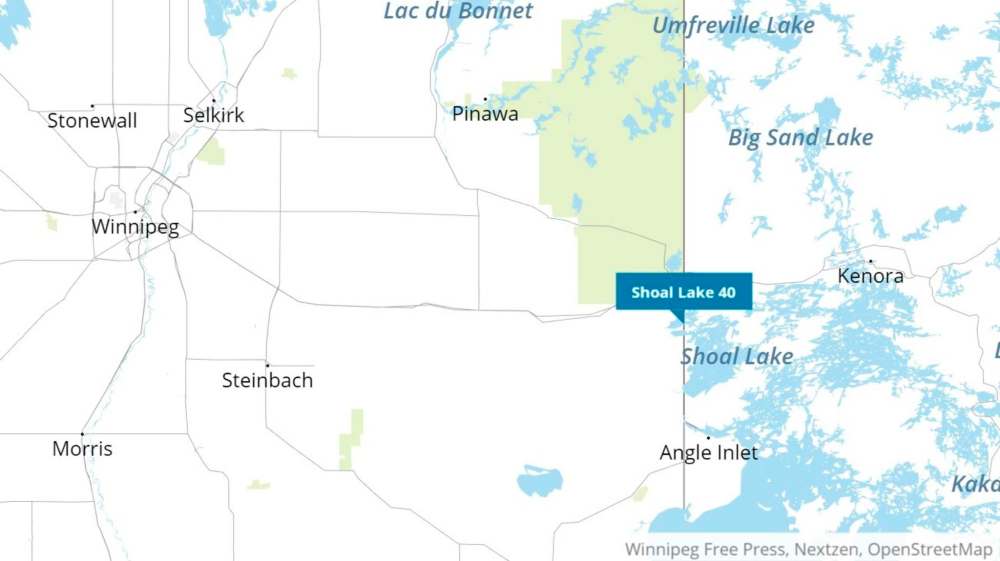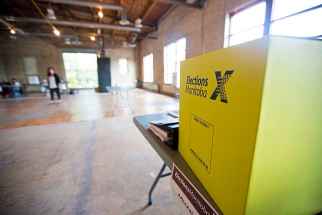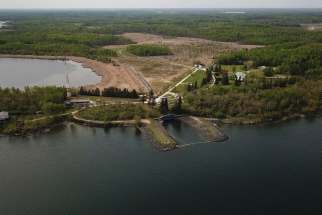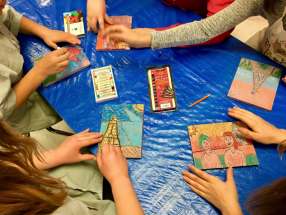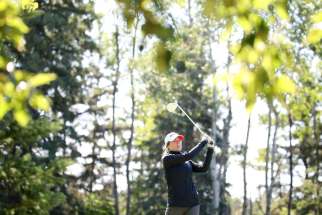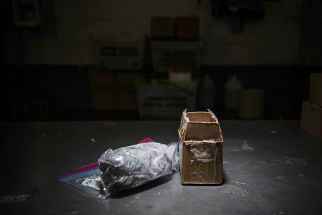Shoal Lake 40 finally getting drinkable water
Read this article for free:
or
Already have an account? Log in here »
To continue reading, please subscribe:
Monthly Digital Subscription
$0 for the first 4 weeks*
- Enjoy unlimited reading on winnipegfreepress.com
- Read the E-Edition, our digital replica newspaper
- Access News Break, our award-winning app
- Play interactive puzzles
*No charge for 4 weeks then price increases to the regular rate of $19.00 plus GST every four weeks. Offer available to new and qualified returning subscribers only. Cancel any time.
Monthly Digital Subscription
$4.75/week*
- Enjoy unlimited reading on winnipegfreepress.com
- Read the E-Edition, our digital replica newspaper
- Access News Break, our award-winning app
- Play interactive puzzles
*Billed as $19 plus GST every four weeks. Cancel any time.
To continue reading, please subscribe:
Add Free Press access to your Brandon Sun subscription for only an additional
$1 for the first 4 weeks*
*Your next subscription payment will increase by $1.00 and you will be charged $16.99 plus GST for four weeks. After four weeks, your payment will increase to $23.99 plus GST every four weeks.
Read unlimited articles for free today:
or
Already have an account? Log in here »
Hey there, time traveller!
This article was published 06/09/2019 (2291 days ago), so information in it may no longer be current.
OTTAWA — Regardless of who takes federal office after the fall election, the people of Shoal Lake 40 will soon have drinkable water.
“It’s been 20 years in the making and it’s finally coming to reality,” said Billy Joe Wahpay, a councillor for the First Nation that straddles the Manitoba-Ontario border.
Shovels went into the ground Friday morning for a new water-treatment system for the reserve, which gained road access in June.
Despite supplying Winnipeg with its drinking water for a century, parts of the community have had to rely on ferries bringing in bottled water since February 1997.
Wahpay said some people on the reserve will likely find it strange to drink from a tap. They’re so accustomed to bottled water, he said, they often bring bottles into Winnipeg during appointments.
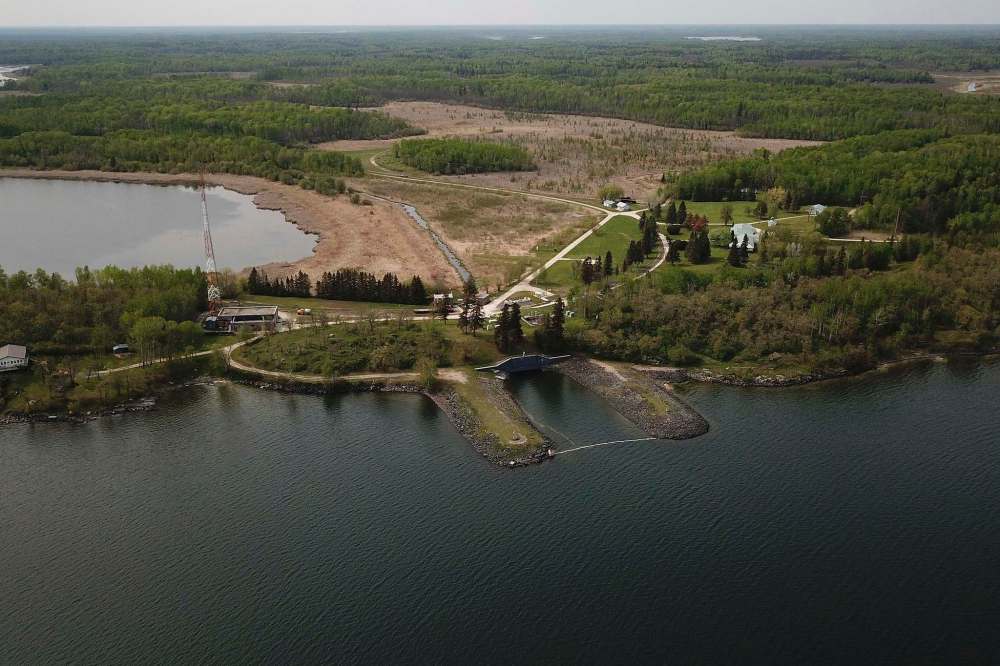
The new, $33-million treatment plant will end seven long-term drinking-water advisories, and provide a centralized water source for 292 residents, as well as water-main connections and fire hydrants. It should be operating by December 2020.
To Wahpay, that means reconciliation. “Our country’s finally recognizing that there was was a wrong, and now we’re finally getting it rectified.”
Dan Vandal, the parliamentary secretary Indigenous Services Minister Seamus O’Regan, said the community’s remoteness held back the project for a few years.
“It’s been a long time coming,” said Vandal, who was on site for the “very emotional” announcement.
“It’s given the community a sense of hope,” said Vandal. He met a local teacher who moved back to the community from Winnipeg because it now has a road.
“This is the kind of thing that you get into politics to get accomplished,” said Vandal, the MP for St. Boniface-St. Vital.
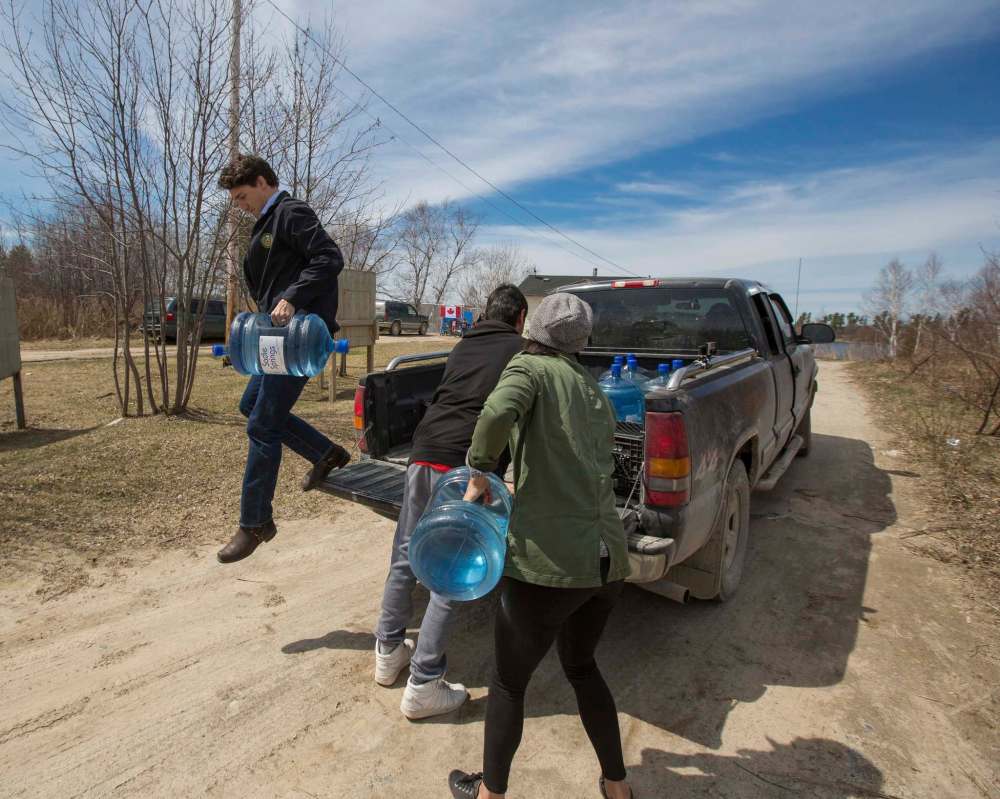
The Liberals have pledged to end all long-term drinking water advisories on public systems by 2021, which means dealing with structural issues that impede households from accessing water, but not private businesses’ pipe issues. A federal election is set to be held Oct. 21.
The Trudeau government has lifted 87 long-term advisories, while 56 remain, in part due to Ottawa broadening its criteria.
Vandal noted that the Liberals have boosted funding for operating water-treatment plants, in the hopes of avoiding boil-water advisories in the first place, to the tune of $605.6 million over four years.
Wahpay was thankful to various governments for getting both a road and drinkable water to his community. He said Winnipeggers helped apply political pressure once they took notice of the situation.
“We are thankful for the citizens of Winnipeg for their help with our struggle.”
dylan.robertson@freepress.mb.ca

